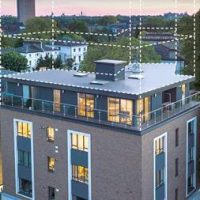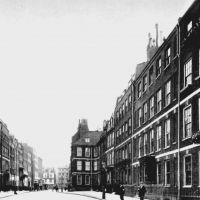Fuller Long have recently been granted planning permission for the change of use of an agricultural barn into an artist’s studio in Pirbright, Surrey.
Before approaching us, our client had previously been advised to submit a prior notification application for a change of use from an agricultural building to a dwellinghouse (Class C3. However, this was refused and then dismissed at appeal.
The main reason for refusal related to the fact that the building was not in use for agriculture prior to 2013. This is one of the key requirements of the prior approval process and so the application could not be approved under this process.
Our client had always aspired to convert the barn to an artist studio rather than a residential unit but had previously been advised to submit a prior approval application to achieve this. Given that there was an Inspector’s decision supporting the Council’s view, we advised our client after he came to us not to continue with this process. Furthermore, it was considered that legislation within the General Permitted Development Order (GPDO) would not allow conversion of a barn to an artist’s studio, as the use would fall outside the scope of Permitted Development. Therefore, any change of use of this nature would require planning permission.
The site in question comprised a detached, former agricultural building, accessed via an unmade track, which was being used for storage at the time of the application. The site was located within the Green Belt, outside of a defined settlement area and so there were more regulations regarding what could and could not be done with the land.
Our consultant established a planning argument to support the change of use from a barn to an artist studio on the understanding that no external changes were proposed and so we were happy to advise our client throughout the application process. We believed that the main issues to be considered within the application were whether the proposal represented appropriate development in the Green Belt, if there would be any potential impact on the residential amenity of adjoining neighbours and highway safety, and so this was our focus.
Policy RE10 of the Guildford Local Plan 2003 discusses the reuse and adaptation of rural buildings to employment, community or recreational use. The Council are currently in the process of finalising their new Local Plan, which has now been through examination by the Planning Inspectorate and therefore carried substantial weight in the decision making process. The Inspector has proposed modifications to some of the new policies, however, there does not appear to be any amendments to Draft Policy P2: Green Belt. This policy confirms that the Council will apply the approach set out in the National Planning Policy Framework (NPPF) with regard to development proposals within the Green Belt.
Whilst the NPPF confirms that the majority of new development in the Green Belt is classed as ‘inappropriate’ and by definition ‘harmful’, it also confirms in paragraph 146 that one of the exceptions to inappropriate development is “the reuse of buildings, provided that the buildings are of a permanent and substantial construction”.
Given that the proposal related solely to a change of use of an existing barn where there would be no additional built form, our consultant advised that this change of use would be consistent with the above exception. Furthermore, as the artist’s studio would only be used privately, it would not materially increase activity on the land, nor would it result in harm to the visual amenity of the countryside.
The barn is set some distance from the nearest residential property. Furthermore, its low key use in the manner proposed would have no detrimental impact upon neighbouring amenity. Given that the artist’s studio was to be for private use only, there would be no intensification of the site and therefore no resulting impact upon the existing highway network.
Our planning consultant was able to make a strong case that the proposals were consistent with the relevant development plan policies and National Guidance. We were also able to demonstrate that there would be no harm to the openness of the Green Belt or its visual amenities, nor would the development contravene the purposes of including land within it. The proposal was considered appropriate development in the Green Belt and complied with the NPPF and emerging Policy P2 of the New Local Plan, and therefore planning permission was granted.
If you have been refused planning permission and would like to seek assistance in submitting an appeal or a revised application, Fuller Long can help. Our consultants are experts in submitting planning appeals and have had considerable success over the years. Call 0845 565 0281 or email hello@fullerlong.com to speak with one of our Consultants today.






